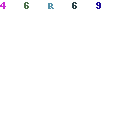Inaugural Darwin Day event explores evolution, intelligent design
SIUE’s first Darwin Day event – a celebration of the life and discoveries of scientist Charles Darwin – brought more than 100 students, staff and faculty together to discuss evolution and intelligent design.

Professors from various departments came together for a panel discussion about evolution v. intelligent design for SIUE's first Darwin Day event, at which more than 100 staff, students and faculty attended. Photo courtesy of Craig Steiner
The event, presented by the biological sciences department, included a viewing of “Flock of Dodos: The Evolution-Intelligent Design Circus” and a panel discussion featuring members of the biological sciences, philosophy, anthropology and mass communications departments.
Biological sciences Department Chair David Duvernell said he chose “Flock of Dodos” because it was “relevant to the topic of natural selection and evolution,” entertaining and could generate discussion. The film explores Darwin’s evolutionary theory versus intelligent design, a version of creationism.
Panelists – Chris Pearson (philosophy), Jennifer Rehg (anthropology), Mark Poepsel (mass communications) and David Duvernell, Kevin Kraniak and David Jennings (biological sciences) – discussed topics ranging from education to philosophical aspects of evolution versus intelligent design.
Sophomore Jeffrey Elliot, president of SIUE’s Free Thought Society, said there is a comfortable position in evolution to say there is not “definite disproof, but metaphorically questioned how long believers will “sit at a bus stop before you call cab?”
In response, Pearson said what was interesting about the film is that it questions how science is perceived “in the context of competing views.”
A lot of questions once thought unable to be resolved, according to Rehg, can now be addressed “through other means.” Just because there are limits today is “not to say we won’t resolve them in the future,” according to Rehg.
“[We] don’t know the limits, [so I] don’t want to say we’ve reached them,” Rehg said.
In exploring evolution versus religion, Rehg said in anthropology diversity of religion is respected, but “you can’t respect everyone’s religious beliefs if you support them in a public setting.” That, she said, is “fundamentally problematic.”
“We’re fed this line to pick one, and that’s not the case,” Rehg said.
As such, Pearson said there is “a lot of complexity” to the division between science and religion.
The “larger problem,” according to Duvernell, is that some people dismiss science completely “especially if it is inconvenient.”
Jennings said part of liberal studies is to show different ways to view different elements of life “not to convert everyone.”
Duvernell said he was pleased with the event, which had a “really good turnout” and “good discussion.”
“A diversity of viewpoints were all expressed and heard and all the panel members got involved… as well as other faculty members in the room,” Duvernell said.
Aldemaro Romero, dean of the College of Arts and Sciences, opened the event discussing the history of Darwin Day, for which events are held around the country, and led attendees in a rendition of “Happy Birthday” to Darwin.
Filed Under: Biological Sciences












